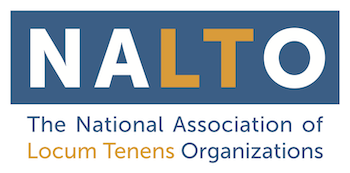Interstate Medical Licensure Compact (IMLC): Increasing Speed to Market for Locum Tenens
Medical providers who wish to practice in multiple states have traditionally faced a timely and cumbersome licensure process to do so. Therefore, many locum tenens companies have entire departments dedicated to helping physicians and advanced practitioners complete the necessary verification and credentialing requirements needed to begin any assignment. This includes assisting providers who need to attain (or renew) their license to practice medicine, a process that’s historically taken as long as six months in a single state.
Therein lies the recent good news from the Federation of State Medical Boards regarding the onset of the Interstate Medical Licensure Compact (or “IMLC”), designed to expedite the process for physicians to obtain multiple licenses through a single application.
The goal is to streamline previous state-by-state licensing procedures into one nationally recognized system, allowing medical professionals to more quickly reach underserved areas and rural populations in need of immediate care.
As with any new policy there are caveats to its implementation and requirements for healthcare providers interested in leveraging its benefits.
Every state must individually approve their participation in the IMLC program. Since its inception just two months ago, eighteen states have already adopted it, with eight more (plus the District of Columbia) currently reviewing proposed legislation to do the same.
Opposition to the IMLC thus far has included entities concerned with the transfer of authority from state health boards to a national commission, in addition to sounding alarms over the potential lack of patient protection in the new program.
However, states hit hardest by the physician shortage that were the first to adopt this policy have been quick to respond with a number of counter points. Those leading the IMLC estimate that only 80% of current physicians actually meet its high standard for patient protection allowing them multi-state licensure. In addition, a state’s acceptance of the IMLC is voluntary and can be repealed at any time. It should be noted as well that the Federation of State Medical Boards (FSMB) is non-profit in status, and the Interstate Medical Licensure Compact is neither a product of Congress, nor any federal branch or agency, simply an agreement between sovereign states.
For locum tenens agencies, the IMLC is a growing opportunity to increase their speed to market. The process for physicians to attain licensure is now easier than ever before.
--
Mike Gianas (Redemption Creative LLC) is a Dallas, Texas-based healthcare marketing consultant for the National Association of Locum Tenens Organizations® (NALTO®), the official governing body of locum tenens staffing whose purpose is to provide industry standards, ethical guidelines, continuing education and a collective forum focused on meeting the needs for care at medical facilities nationwide.
